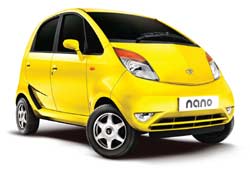India’s benchmark stock index fluctuated. Reliance Industries Ltd. rose while Hindalco Industries Ltd. fell.
Reliance Industries, the nation’s most valuable company, gained the most in a week. Hindalco, the biggest aluminum producer, dropped for the second day as raw material prices declined.Housing Development Finance Corp., a mortgage lender, lost 1.6 percent ahead of a Nov. 2 Reserve Bank of India monetary policy decision that may increase borrowing costs.
The Bombay Stock Exchange’s Sensitive Index, or Sensex, fell 16.34, or 0.1 percent to 19,924.70 at 12:09 p.m. in Mumbai after swinging between gains and losses at least eight times. The measure, which has lost 1.2 percent this week, is set for its first monthly decline in five.
“The mood is cautious ahead of the next week’s monetary policy” meeting said D.K. Aggarwal, who manages about $100 million as chairman of SMC Wealth Management Services Ltd. in New Delhi.
The gauge has gained 24 percent from a May 25 low and is the best performer this year among the world’s 10 biggest stock markets. Foreign investment into local stocks has risen 70 percent this year, making the Sensex the most valuable benchmark in Asia. On Oct. 14 the index was 19 points short of the record closing high of 20,873.33 and has declined since then.
The S&P CNX Nifty Index on the National Stock Exchange retreated 0.1 percent to 5,979.35. The BSE 200 Index declined 0.2 percent to 2,534.59.
Reliance gained 1.4 percent to 1,096.85 rupees, the biggest advance since Oct. 21. NTPC Ltd., the biggest power producer, added 1.7 percent to 197.25 rupees.
Hindalco lost 1.1 percent to 214 rupees. Sterlite Industries (India) Ltd., the No. 1 copper and zinc producer, decreased 1 percent to 168.75 rupees. Tata Steel Ltd., the biggest producer of the alloy, retreated 1.5 percent to 594.7 rupees.
Copper declined as much as 1.2 percent on the London Metal Exchange on concern that a recent rally in prices slowed purchases in China, the world’s largest consumer. Aluminum in London fell 1 percent.
Tata Motors Ltd., the biggest truckmaker, dropped 2.9 percent to 1158.6 rupees after Chief Financial Officer C. Ramakrishnan said profit margins “will be under pressure” as costs are building up. He was speaking in an interview with CNBC-TV18 today.
Housing Development fell 1.6 percent to 681.35 rupees.
The Reserve Bank of India will raise its two main interest rates by a quarter percentage point each, according to most economists in a Bloomberg News survey. Borrowing costs have been increased five times this year to cool inflation.
Overseas investors were net buyers of Indian equities for a 41st day on Oct. 27, the longest streak on record, according to the nation’s market regulator.
Global funds bought a net 977 million rupees ($22 million) of shares, extending this year’s record inflows to 1.135 trillion rupees, the Securities & Exchange Board of India said.
Central bank Governor Duvvuri Subbarao warned this week that near-zero interest rates in developed nations are fueling “speculative” capital flows into emerging markets, heightening the risk of asset bubbles.
 "The average increase is about Rs9,000 (ex-showrooms), with prices varying from city to city and model to model," the company said in a release.
"The average increase is about Rs9,000 (ex-showrooms), with prices varying from city to city and model to model," the company said in a release.



